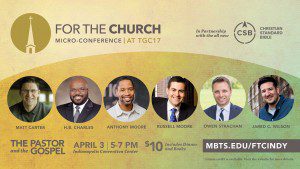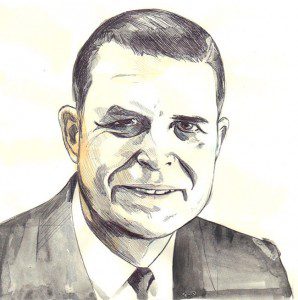 Just saw that the Together for Adoption conference, held this past weekend in Franklin, TN, drew over 600 people. Praise God for that response.
Just saw that the Together for Adoption conference, held this past weekend in Franklin, TN, drew over 600 people. Praise God for that response.
It’s also great to see that Zach Nielsen live-blogged the whole conference. His summaries are available here. Dan Cruver, director of T4A, blogged what he saw as the highlights of the conference. I would encourage you to read them alongside Nielsen’s valuable summaries.
Many of us have benefited hugely from Russell Moore’s reflection and theological work on adoption, crystallized in his recent book Adopted for Life. Moore echoed many of the themes of his text in his talk. Nielsen captured a particularly stirring section of the talk, which bears reading in full:
Dr. Moore began his message by telling the story of being struck with the silence of the Russian orphanage where he picked up his two adopted boys. Think of it, a building full of babies and it’s silent. The reason for the silence is that babies will eventually learn that if they cry and no one comes, crying doesn’t accomplish anything and they will be quiet.
He recounted that his boys remained silent with them for most of the time during the days that he and his wife were there with them at the orphanage until the day they had to leave and go home without them waiting for the Russian government to process all the paperwork. They would come back to get them a few weeks to months later.
On that day when they had to leave, he heard his boys scream for the first time. He said it was the most “horrifyingly beautiful thing he had ever heard” because he knew that his boys knew that the Moores were their parents. This showed him what the ABBA cry of the Christian is all about.
Moore also suggested that the adoption surge currently making its way through the reformed and conservative evangelical crowds not pigeonhole itself. His words are clear and striking:
If the orphan care movement is going to be successful, it cannot be a movement. It has to bubble up out of real churches. It’s can’t be a special interest group competing with other groups. If it becomes a group movement like Homeschoolers, then it is not calling us to what the doctrine of adoption is about in the first place. We are not adopted because of what we have done based on deeds, how cool we are for adopting, or for what we have accomplished. We cannot get prideful and frustrated by those who don’t “get it” or share our vision of adoption care but rather we know that we are saved by grace and so we can extend grace to those who “don’t get it”.
Read all of the live-blog recaps.
It is deeply encouraging to read of this excellent conference and its outcome. Here is hoping that it will continue to have a pronounced impact on the evangelical community. The fact that this movement has grounded itself in a biblical-theological perspective on adoption is a great sign for its future health.
Too many of our historic evangelical movements have arisen out of a burden, a call to cultural response and Christian engagement, but have not been grounded by theological leaders in the rich soil of biblical truth. Dan Cruver and Jason Kovacs and others are working hard toward this end. With you, I’m going to continue to pray for them and to ask the Lord to bless what they are doing and give it widespread influence among the people of God.
For my part, I hope that this will reach deeply in the reformed community and spread to all corners of evangelicalism. In the process, here’s hoping that it will result in broadened theology and enriched biblical understanding. May the deep sigh of satisfaction that comes when one digs into the Bible yield another expression of gratitude, the primal scream of consummate delight that comes when orphans and pilgrims find a father–and a Father.











